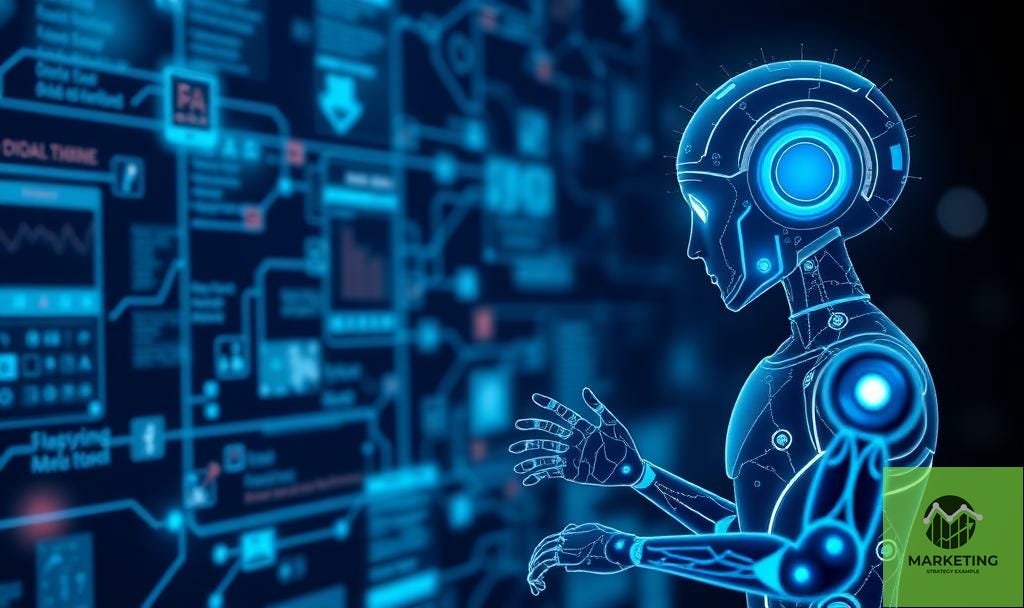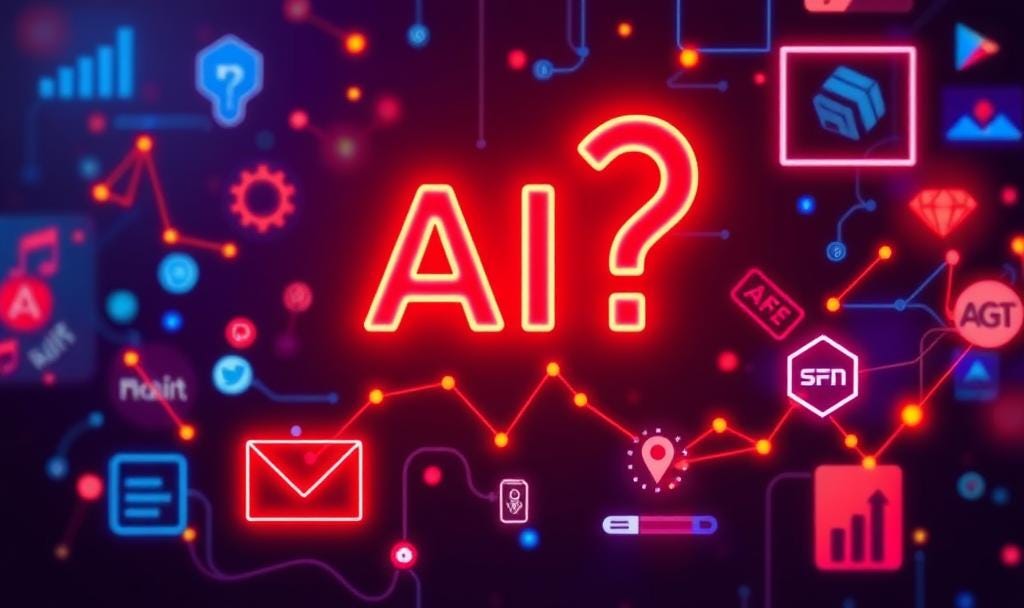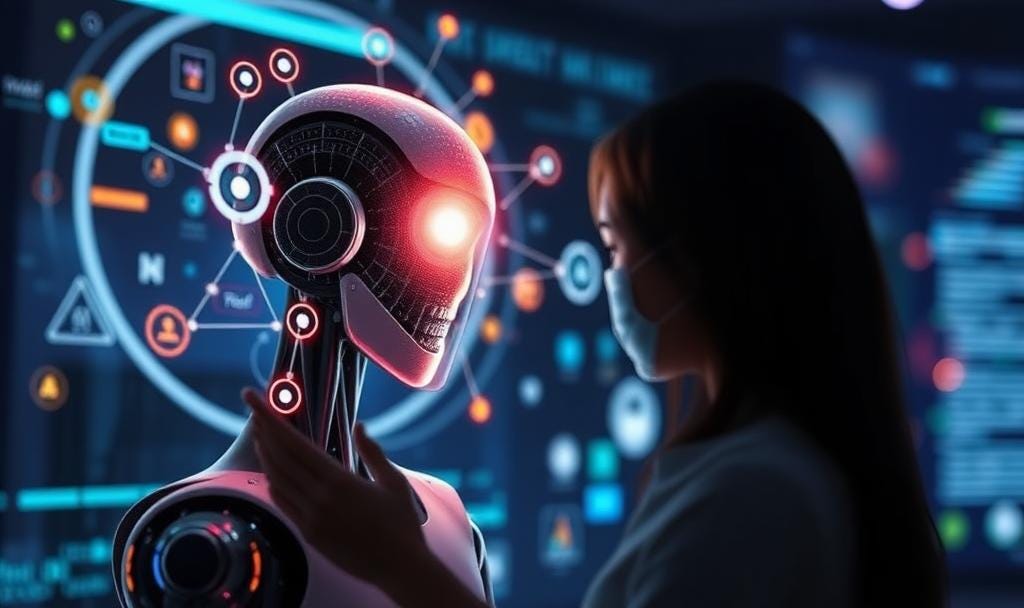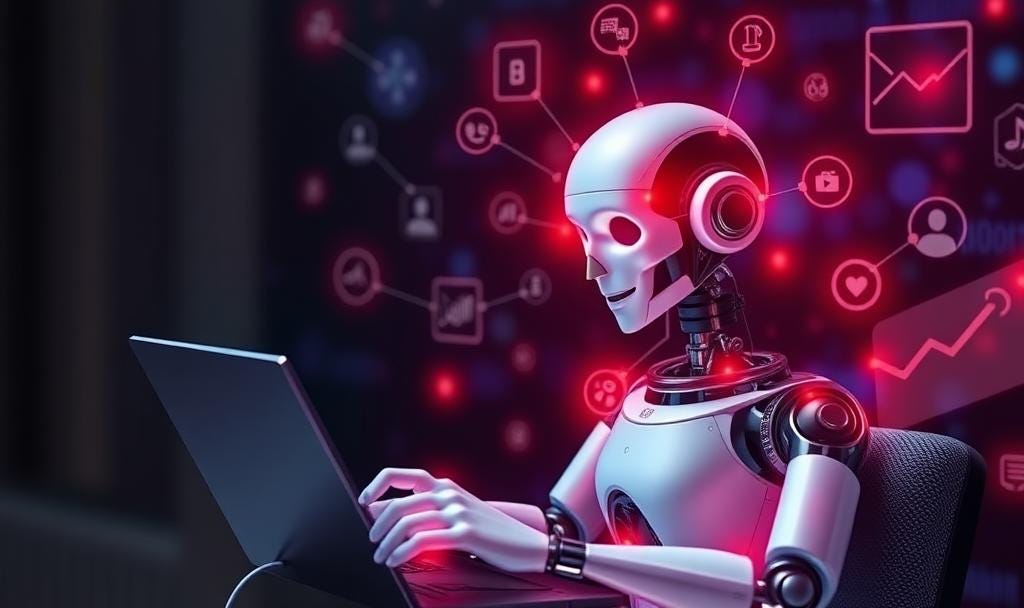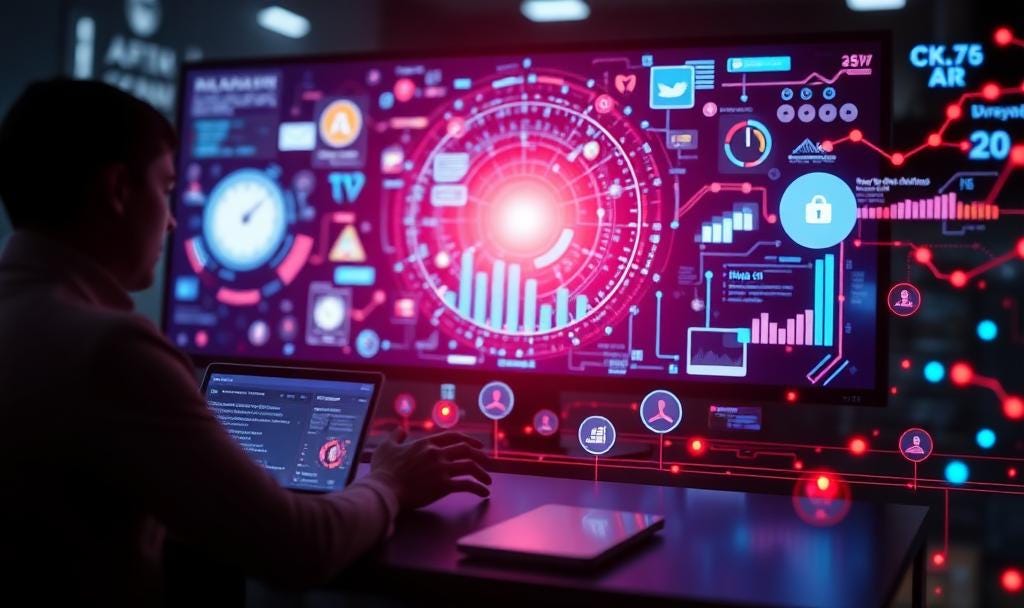The Role of AI in Digital Marketing: Transforming Strategies and Driving Results
AI is impacting every aspect of digital marketing, from content creation to customer engagement.
Artificial Intelligence (AI) is no longer a futuristic concept—it’s a reality that’s reshaping the digital marketing landscape. From personalized customer experiences to data-driven decision-making, AI is revolutionizing how businesses connect with their audiences and achieve their marketing goals. As competition intensifies and consumer expectations rise, leveraging AI in digital marketing is no longer optional—it’s essential.
In this comprehensive guide, we’ll explore the role of AI in digital marketing, highlighting its applications, benefits, and future trends. Whether you’re a business owner, marketer, or entrepreneur, this guide will help you understand how AI can transform your strategies and drive measurable results.
What is AI in Digital Marketing?
AI refers to the simulation of human intelligence in machines that are programmed to perform tasks such as learning, reasoning, and problem-solving. In digital marketing, AI is used to analyze data, automate processes, and deliver personalized experiences at scale.
Key technologies driving AI in digital marketing include:
Machine Learning (ML): Algorithms that learn from data to make predictions or decisions.
Natural Language Processing (NLP): Enables machines to understand and respond to human language.
Computer Vision: Allows machines to interpret and analyze visual data.
Predictive Analytics: Uses historical data to forecast future outcomes.
How AI is Transforming Digital Marketing
AI is impacting every aspect of digital marketing, from content creation to customer engagement. Here’s how:
1. Personalized Customer Experiences
AI enables marketers to deliver hyper-personalized experiences by analyzing user behavior, preferences, and interactions. Examples include:
Personalized product recommendations on e-commerce sites.
Dynamic email content tailored to individual subscribers.
Customized website experiences based on user data.
2. Data-Driven Decision Making
AI-powered analytics tools process vast amounts of data to uncover insights and trends. Marketers can use these insights to:
Optimize campaigns in real-time.
Identify high-performing channels and tactics.
Predict customer behavior and preferences.
3. Automation of Repetitive Tasks
AI automates time-consuming tasks, freeing up marketers to focus on strategy and creativity. Examples include:
Automating email marketing workflows.
Scheduling and publishing social media posts.
Generating reports and performance dashboards.
4. Enhanced Content Creation
AI tools are revolutionizing content creation by:
Generating blog posts, social media captions, and ad copy.
Optimizing content for SEO and readability.
Creating visual content like infographics and videos.
5. Improved Customer Support
AI-powered chatbots and virtual assistants provide instant, 24/7 support to customers. They can:
Answer frequently asked questions.
Guide users through the purchase process.
Resolve issues without human intervention.
6. Advanced Advertising Strategies
AI is transforming digital advertising by:
Optimizing ad targeting and bidding in real-time.
Predicting the best-performing ad creatives.
Delivering personalized ads based on user behavior.
Benefits of AI in Digital Marketing
The integration of AI into digital marketing offers numerous benefits, including:
Increased Efficiency: Automating repetitive tasks saves time and resources.
Better Targeting: AI helps you reach the right audience with the right message.
Higher ROI: Data-driven strategies lead to more effective campaigns.
Improved Customer Engagement: Personalized experiences foster loyalty and trust.
Scalability: AI enables you to manage large-scale campaigns with ease.
Applications of AI in Digital Marketing
1. Search Engine Optimization (SEO)
AI is revolutionizing SEO by:
Analyzing search intent and optimizing content accordingly.
Identifying high-performing keywords and topics.
Automating technical SEO audits and fixes.
Tools like Surfer SEO and Clearscope use AI to help marketers create content that ranks higher on search engines.
2. Social Media Marketing
AI enhances social media marketing by:
Analyzing audience behavior and preferences.
Scheduling posts at optimal times.
Generating insights to improve engagement.
Platforms like Hootsuite and Sprout Social leverage AI to streamline social media management.
3. Email Marketing
AI-powered email marketing tools:
Segment audiences based on behavior and preferences.
Personalize email content and subject lines.
Predict the best times to send emails.
Tools like Mailchimp and HubSpot use AI to optimize email campaigns.
4. Content Marketing
AI is transforming content marketing by:
Generating blog posts, articles, and ad copy.
Analyzing content performance and suggesting improvements.
Creating visual content like infographics and videos.
Tools like Jasper and Writesonic use AI to assist with content creation.
5. Pay-Per-Click (PPC) Advertising
AI improves PPC advertising by:
Optimizing bids and budgets in real-time.
Predicting the best-performing ad creatives.
Targeting the right audience with precision.
Platforms like Google Ads and Facebook Ads use AI to enhance campaign performance.
Challenges of AI in Digital Marketing
While AI offers numerous benefits, it also presents challenges, including:
Data Privacy Concerns: Collecting and analyzing user data raises privacy issues.
High Costs: Implementing AI tools and technologies can be expensive.
Skill Gaps: Marketers need to upskill to effectively use AI tools.
Over-Reliance on Automation: Excessive automation can lead to a lack of human touch.
Future Trends in AI and Digital Marketing
The role of AI in digital marketing will continue to evolve, with emerging trends such as:
Voice Search Optimization: As voice assistants like Alexa and Siri gain popularity, optimizing for voice search will become crucial.
AI-Generated Content: AI will play a larger role in creating high-quality, engaging content.
Predictive Customer Journeys: AI will predict customer behavior and tailor marketing strategies accordingly.
Augmented Reality (AR) and Virtual Reality (VR): AI-powered AR and VR experiences will enhance customer engagement.
Conclusion
AI is transforming digital marketing by enabling personalized experiences, automating processes, and driving data-driven decision-making. By leveraging AI tools and technologies, businesses can stay ahead of the competition, improve customer engagement, and achieve their marketing goals.
As AI continues to evolve, staying informed about the latest trends and best practices will be essential for success. Start exploring AI-powered solutions today to unlock the full potential of your digital marketing efforts.




